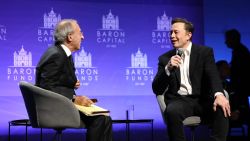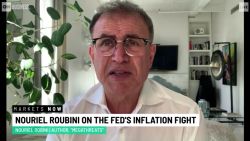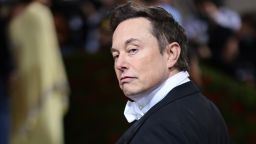Here’s more bad news for Tesla CEO Elon Musk — as if he needs any.
Investors who took short positions in Tesla stock have made an $11.5 billion profit so far this year, according to Wall Street analytics firm S3 Partners, as Tesla shares lost about half their value. That’s a nearly 60% return on the $19.6 billion invested in short positions on Tesla this year.
And it’s a nearly 180-degree reversal in how they did in 2021, when their short positions resulted in a combined $10.3 billion loss, after Tesla shares rose 50%. And let’s not forget the $40.7 billion loss short sellers suffered in 2020, when shares of Tesla climbed 743%.
The problems for Tesla stock, and the gains for short sellers, actually began about a year ago.
“Since its recent high of $409.97 a share on November 4, 2021, Tesla shorts are up $16.3 billion,” said Ihor Dusaniwsky, managing director at S3. That’s a 79% return on an average short interest of $20.6 billion, he said.
Tesla (TSLA) has always had its shares of doubters, who question the willingness of car buyers to shift from gas-powered vehicles to electric, how much Tesla (TSLA) has to worry about EV offerings from established automakers and even the validity of the company’s earnings.
Until a couple of years ago Tesla’s profits, such as they were, came not from selling cars but from the tax credits it sold to other automakers so they could comply with emission regulations.
Those doubts have made Tesla one of the most shorted stocks in the market. This year it stands at No. 2 behind only Apple (AAPL), which has short positions of about $17 billion. But while Apple (AAPL) shares have also dropped, those shorting its shares have made a far more modest $3.7 billion this year, according to S3.
No CEO likes investors who short their stock, but Musk seems to be particularly angered by them. He’s suggested that Tesla’s critics on Wall Street are doing the work of short sellers, and mocks them when the stock is doing well, even selling red satin “short shorts” on Tesla’s website.
But the short selling is just one of many problems Musk is dealing with this year.
He’s lost nearly $100 billion of his estimated world-leading net worth, and may be on the verge of losing his position as the world’s richest person.
After years of climbing sales and repeated profit records, Tesla has been hammered by supply chain problems and Covid-related shutdowns in China that caused a rare drop in its car sales and a decline in profits. The company also has admitted it would not hit its target of 50% growth in sales this year. The once high-flying stock has shifted into reverse.
There are also concerns that he’s become distracted by his purchase of Twitter. In April he agreed to pay $44 billion for Twitter, only to see the value of the company plunge even before the sale was completed.
His efforts to get out of the deal failed, leaving him to admit he was overpaying for the social media platform. Soon after he took control, advertisers started fleeing the site, and Musk admitted Twitter was experiencing a “massive drop in revenue.”


























